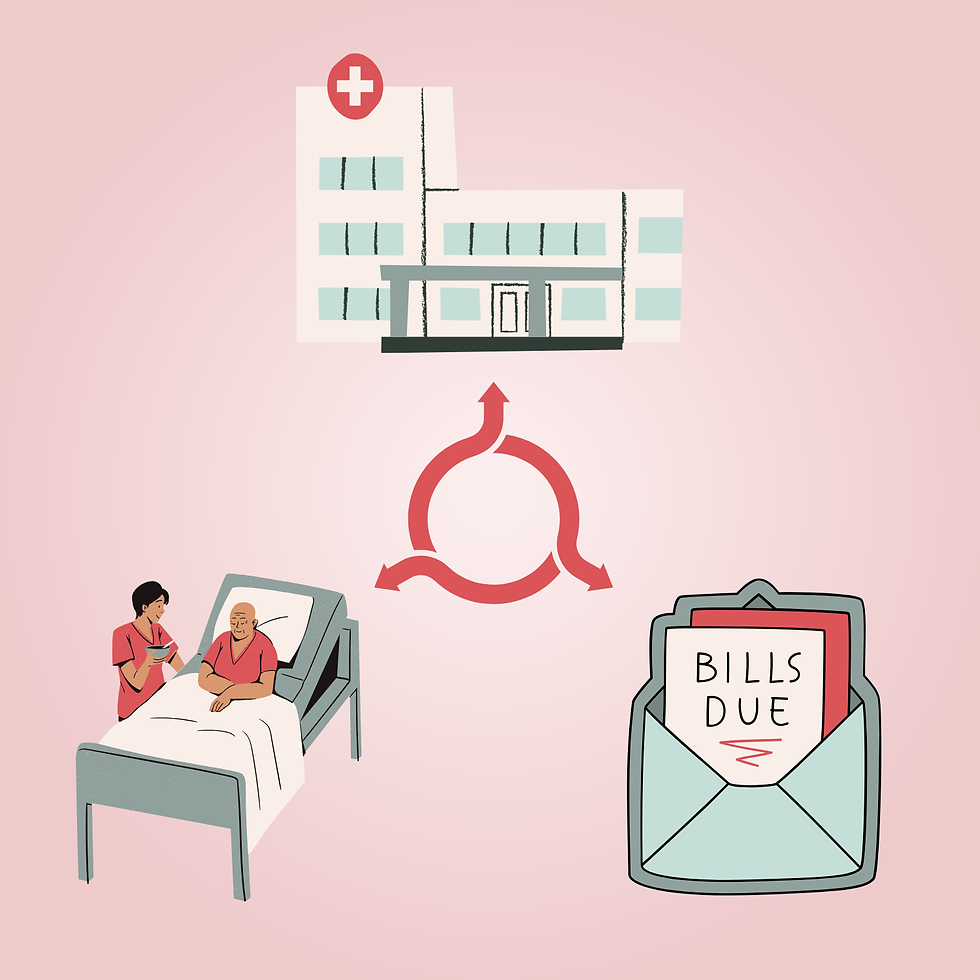Long-Covid: Should We Be Worried?
- Annie Vila
- Oct 24, 2021
- 3 min read
It’s 2021, and, for many of us, it is starting to feel like we are getting past the toughest part of the Covid-19 pandemic. People are getting vaccinated, and while mask mandates are still encouraged and enforced in many areas, they are starting to become less prevalent in vaccinated populations. This is what we’ve all been wishing for since the pandemic first began. Unfortunately, this is not the case for many patients and victims of Covid-19. Long Covid: what is it, what causes it and who does it affect?
Long Covid typically refers to symptoms that persist past 12 weeks after infection. These symptoms range from mild to severe and can have a detrimental effect on the patient’s health, as some patients are left unable to accomplish simple tasks such as showering or sleeping properly. Other markers of Long Covid can include tiredness, shortness of breath, heart palpitations, chest pain, changes to taste or smell, problems with memory and concentration, or joint pain. Additionally, several studies have reported up to 200 varying symptoms [1].

Even more concerning, doctors are not completely sure of what causes these symptoms. Several possibilities and theories are swirling around the medical community. For example, one prevalent hypothesis holds that it is caused by the patient’s immune system working overdrive to try to fight off the virus, leading the immune system to attack normal tissue that helps us perform daily functions. This is a terrifying thought; our immune systems are supposed to defend our body and tissues, not be the reason we are getting sick. Another theory posits that part of the virus stays in our bodies for months after, causing these lasting effects known as Long Covid for some. It is still too early to specify the exact cause, and several doctors believe that it could be a combination of several possibilities. Preliminary data is showing that this could be the case [2].
Regardless, Long Covid is something to be fearful and aware of, as it could affect any Covid-19 patient. The effects of Long Covid seem to be prevalent within all age groups, however, it is not yet statistically known how Long Covid affects children versus adults. For example, it has been observed that children display fatigue, depression, shortness of breath and other long-haul symptoms [3], but this is something that warrants further study. In addition to physical symptoms, the severe mental toll of Covid-19 cannot be ignored.Whether it be due to isolation or actually contracting the virus, and what that means for one’s health, it is important to pay attention and take care of your mental health throughout this pandemic process.
Long Covid is a scary reality for all of us, and it is key to remember that no one is alone in this battle. We are all struggling. We are all trying to make the best out of a horrible situation. Long Covid may still be a mystery, but we are all faced with its possible implications.
References
[1] Schraer, R. (2021, September 17). Long covid: What is it and what are the symptoms? BBC News. Retrieved October 22, 2021, from https://www.bbc.com/news/health-57833394.
[2] Marshall, M. (2021, June 9). The four most urgent questions about long covid. Nature News. Retrieved October 22, 2021, from https://www.nature.com/articles/d41586-021-01511-z.
[3] Covid 'long haulers': Long-term effects of COVID-19. Johns Hopkins Medicine. (n.d.). Retrieved October 22, 2021, from https://www.hopkinsmedicine.org/health/conditions-and-diseases/coronavirus/covid-long-haulers-long-term-effects-of-covid19.



Comments